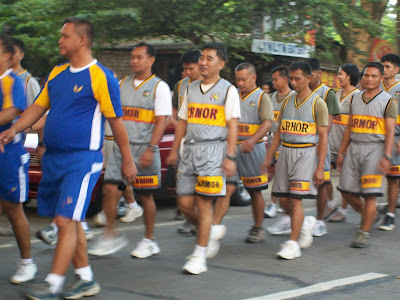This is a document that was published by the Office of the
Provost Marshall General of the U.S. Army, over 50 years ago. It’s
called “Completed Staff Work”.
Read on, and if you’re a
leader, the words will clarify an important message to convey to your
people, and if you are someone who reports to that leader, you will
learn something important about how to enhance your career:
“Completed Staff Work” is the study of a problem and presentation of a
solution by a staff officer in such a form that all that remains to be
done on the part of the head of the staff division, or the commander,
is to indicate his approval or disapproval of the completed action.
The words “completed action” are emphasized because the more difficult
the problem is, the more the tendency to present the problem to the
chief in piecemeal fashion. It is your duty as a staff officer to work
out the details…. The product, whether it involves the pronouncement of
a new policy or affects an established one, should, when presented to
the chief for approval or disapproval, be worked out in finished form.
The impulse which often comes to the inexperienced staff officer is to
ask the chief what to do, and it recurs more often when the problem is
difficult. It is accompanied by a feeling of mental frustration. It is
easy to ask the chief what to do, and it appears so easy for him to
answer. Resist that impulse. You will succumb to it only if you do not
know your job.
It is your job to advise the chief what to do—not to ask him what you ought to do (my emphasis). He
needs answers, not questions. Your job is to study, write, restudy and
rewrite until you have evolved a single proposed action…
Do not worry your chief with long explanations and memoranda. (Writing
a memorandum to your chief does not constitute completed staff work,
but writing a memorandum for your chief to send to someone else
does)….In most instances, completed staff work results in a single
document prepared for the signature of the chief, without accompanying
comment. (If the proper result is reached, the chief will usually
recognize it at once….)
The theory of completed staff work does not preclude a “rough draft”,
but the rough draft must not be a half-baked idea…A rough draft must
not be used as an excuse for shifting to the chief the burden of
formulating the action.
The “completed staff work” theory accomplishes two things:
A. The chief is protected from half-baked ideas, voluminous memoranda, and immature oral presentations.
B. The staff officer who has a real idea to sell is enabled to more readily find a market.
When you have finished your “completed staff work”, the final test is this:
If you were the chief, would you be willing to sign the paper you have prepared and stake your professional reputation on it?
If the answer is in the negative, take it back and work it over, because it is not yet “completed staff work.”
---------------------
Taken from Oren's Blog
by Oren Harari. September 27, 2007 - http://www.harari.com/blog/index.php?/archives/150-Completed-Staff-Work.html




















































